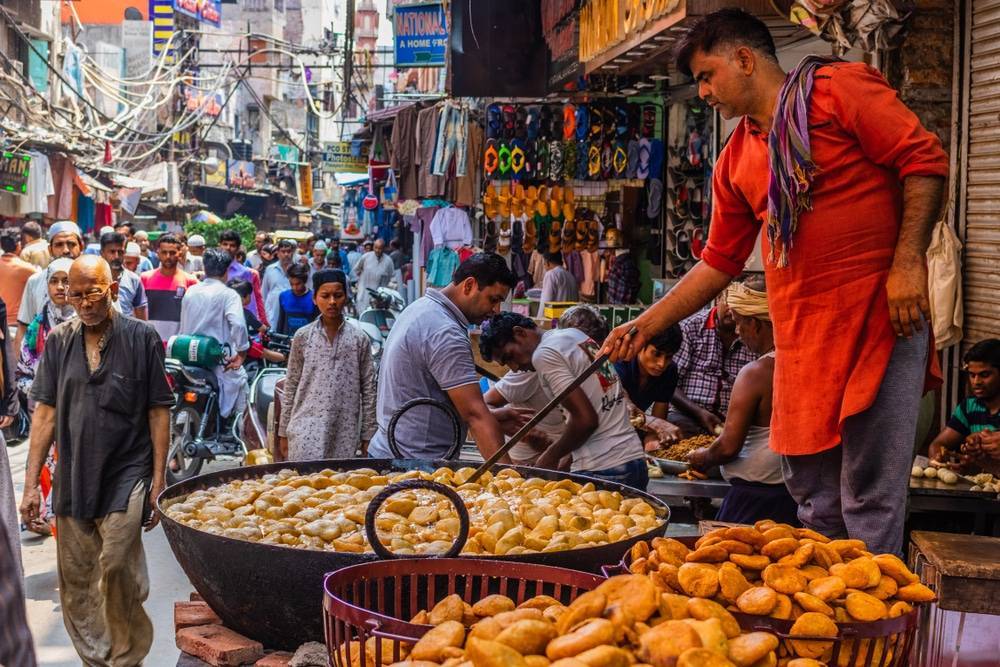The vibrant street food scene in India offers a tantalising taste of the country’s rich culinary heritage. However, beneath the allure of these mouth-watering delights lies a cautionary tale of health risks that consumers should not ignore.
As this viral TikTok video shows, there are concerns over the cleanliness of street food. We get Dr Shanker Pasupathy, General Surgeon trained in gastrointestinal and vascular surgery, to weigh in.
@lmentalist Indian street food is another level #indianstreetfood #fyp #streetfood #indiantiktok #nourritureindienne #cuisineindienne #indianfoodie #indianfoodblogger #unhygienic ♬ original sound – Lmentalist
@lmentalist Indian street food is another level #indianstreetfood #fyp #streetfood #indiantiktok #nourritureindienne #cuisineindienne #indianfoodie #indianfoodblogger #unhygenic ♬ original sound – Lmentalist
The TikTok Trend
India’s street food, ranging from spicy chaats to sweet jalebis, has taken TikTok by storm. Videos showcasing colorful, flavorful dishes attract millions of views, tempting food enthusiasts worldwide to indulge in these roadside delicacies.
Hidden Hazards
While the visual feast entices many, the unseen dangers of consuming street food warrant attention. The charm of quick, delicious, and affordable meals often overshadows the potential health risks, including foodborne illnesses, hygiene concerns, and chronic health issues.
Foodborne Illnesses
The risk of contracting foodborne diseases from street food is a significant concern. Improper food handling, inadequate cooking, and unhygienic conditions can lead to serious infections such as salmonella, E. coli, and cholera. These ailments can cause symptoms ranging from mild discomfort to severe dehydration and, in extreme cases, death.
The lack of clean water and proper sanitation facilities at many street food stalls also poses a grave hygiene issue. The use of contaminated water for cooking and washing utensils can introduce harmful pathogens into the food, endangering consumer health.
Chronic Health Issues
Frequent consumption of street food, often high in fats, sugars, and oils, can contribute to long-term health problems. Non-communicable diseases like obesity, diabetes, and heart conditions have been linked to diets rich in unhealthy street foods.
Dr Shanker also added that these street foods, if not prepared sanitarily, can cause ‘Gastro-intestinal infections including intestinal parasites and ingestion of toxins’
He also added that the most common condition is gastroenteritis. Subsequently, he stated, “It typically manifests as vomiting, abdominal pain, bloating and/or diarrhoea. In the acute setting we usually do not bother investigating as attacks often resolve within a few hours. If symptoms persist or worsen, hospitalisation for intravenous fluids, tests, and antibiotics may be necessary.”
A Call for Caution
While the temptation to dive into the world of street food is understandable, consumers should exercise caution. Here are some tips to enjoy these delicacies safely:
- Opt for vendors with a high turnover, indicating fresher ingredients.
- Look for stalls that maintain clean cooking areas and utensils.
- Choose cooked foods over raw, reducing the risk of consuming contaminated items.
- Pay attention to the vendor’s personal hygiene, including the use of gloves and hairnets.
The Road Ahead
The government and food safety organisations are ramping up efforts to improve street food safety standards. Initiatives include training vendors in food hygiene, regular health inspections, and encouraging safe cooking practices and ingredients.
Final Thoughts
With its diverse flavours and cultural significance, India’s street food continues to captivate hearts and palates. By prioritising safety and hygiene, vendors and consumers can ensure this culinary tradition thrives without compromising health. Therefore, the next time a TikTok video tempts you to try some street food, remember to enjoy it with caution.

